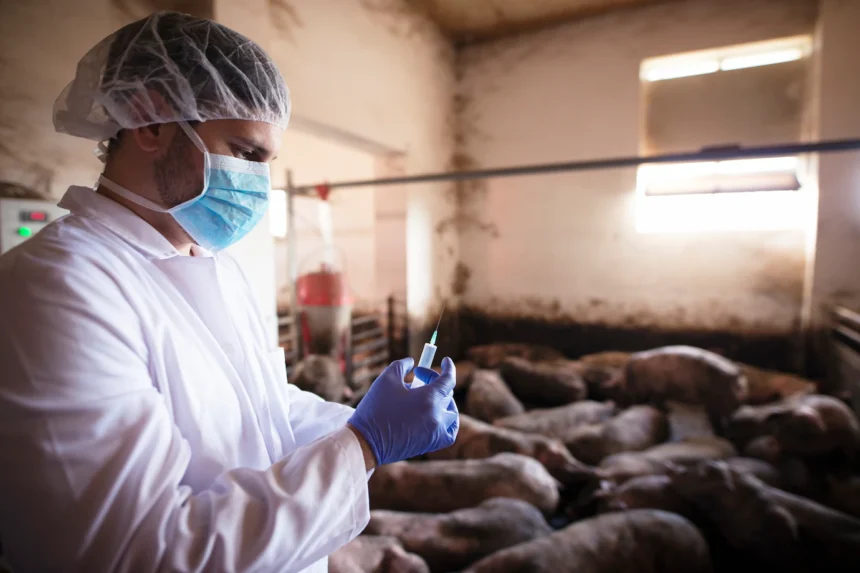Managing animal health and preventing and treating diseases in South African livestock is crucial for the sustainability and profitability of the livestock industry. Livestock diseases can have significant economic impacts, leading to loss of production, decreased fertility, increased mortality rates, and restrictions on trade. Here are some key aspects of managing animal health in South African livestock:
- Disease Surveillance and Monitoring: Establishing effective disease surveillance systems is essential for early detection of diseases and timely intervention. Government agencies, veterinary services, and industry stakeholders collaborate to monitor disease patterns, collect data, and identify potential outbreaks.
- Vaccination Programs: Vaccination plays a vital role in preventing and controlling various livestock diseases. South African livestock farmers should work closely with veterinarians to develop vaccination schedules tailored to the specific diseases prevalent in their region. Vaccinations help build herd immunity and reduce the risk of disease transmission.
- Biosecurity Measures: Implementing strict biosecurity protocols is crucial to prevent the introduction and spread of diseases. Measures may include quarantine periods for new animals, restricted access to livestock facilities, regular cleaning and disinfection of premises, and controlling the movement of people, equipment, and vehicles.
- Parasite Control: Parasitic diseases, such as tick-borne diseases and internal parasites, can significantly impact livestock health. Implementing integrated parasite control programs, including strategic deworming, pasture management, and genetic selection for resistance, can help minimize the risk of parasitic infections.
- Good Herd Management Practices: Proper nutrition, housing, and husbandry practices are essential for maintaining the overall health and well-being of livestock. Providing balanced diets, clean water, appropriate housing, and adequate space can help reduce stress, enhance immune function, and improve disease resistance.
- Collaboration and Education: Collaboration between farmers, veterinary professionals, and government agencies is critical in preventing and managing livestock diseases. Regular training and education programs should be conducted to raise awareness among farmers about disease prevention, early detection, and appropriate treatment methods.
- Disease Outbreak Response: In the event of a disease outbreak, swift response and effective management are crucial. This includes rapid diagnosis, quarantine measures, culling infected animals if necessary, and implementing control measures to prevent further spread.
- Research and Development: Investing in research and development is essential to continually improve disease prevention, diagnosis, and treatment methods. Collaborative efforts between researchers, veterinarians, and the livestock industry can lead to the development of new vaccines, diagnostic tools, and innovative strategies for disease management.
South Africa has a diverse livestock sector, including cattle, sheep, goats, and poultry. The government, veterinary services, and industry organizations work together to establish policies, regulations, and programs to safeguard animal health. By implementing comprehensive disease prevention and management strategies, South African livestock farmers can ensure the long-term health and productivity of their animals, contributing to a sustainable and profitable livestock industry.
Join 'Farmers Mag' WhatsApp Channel
Get the latest Farming news and tips delivered straight to your WhatsApp
CLICK HERE TO JOIN






